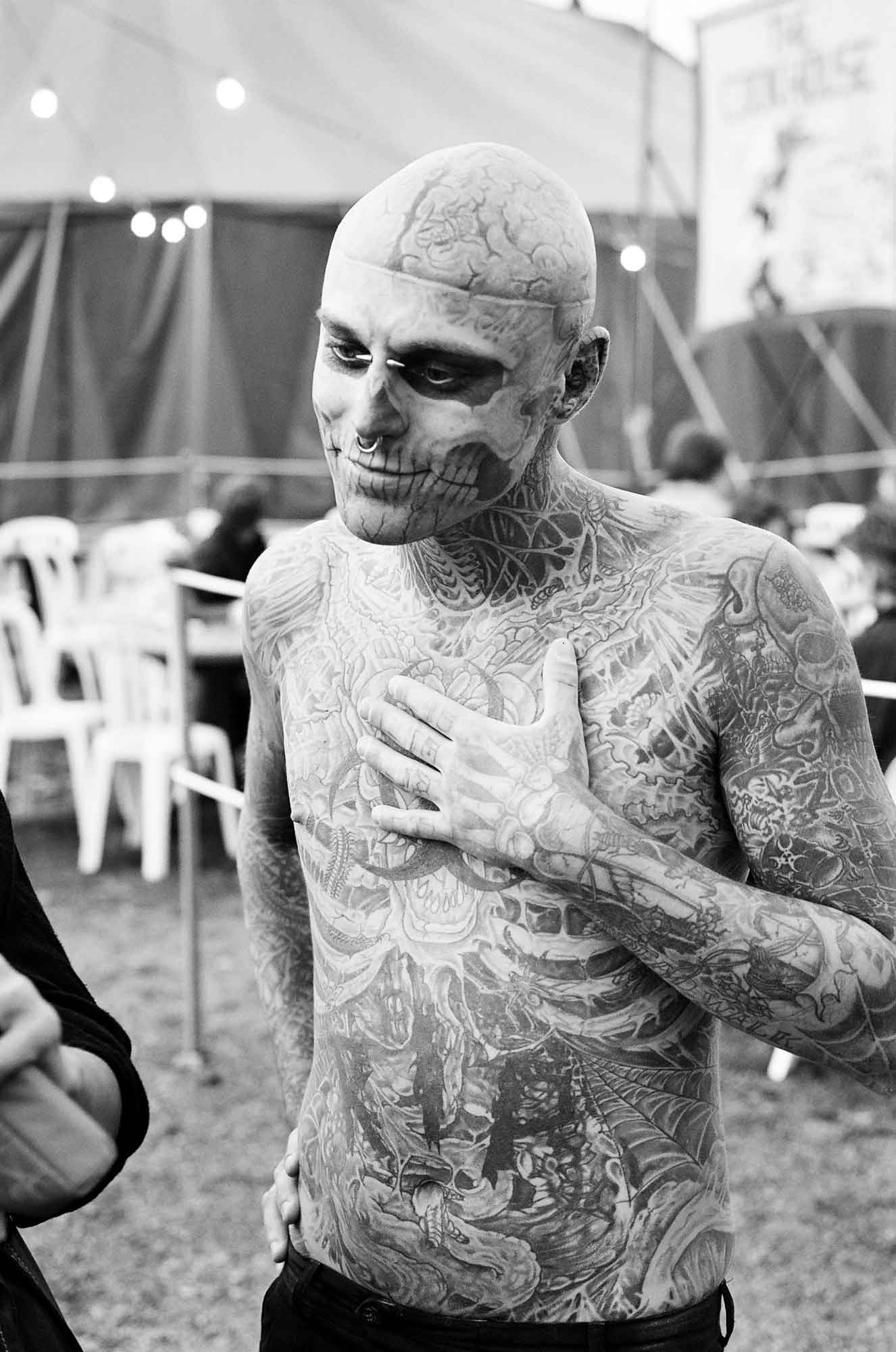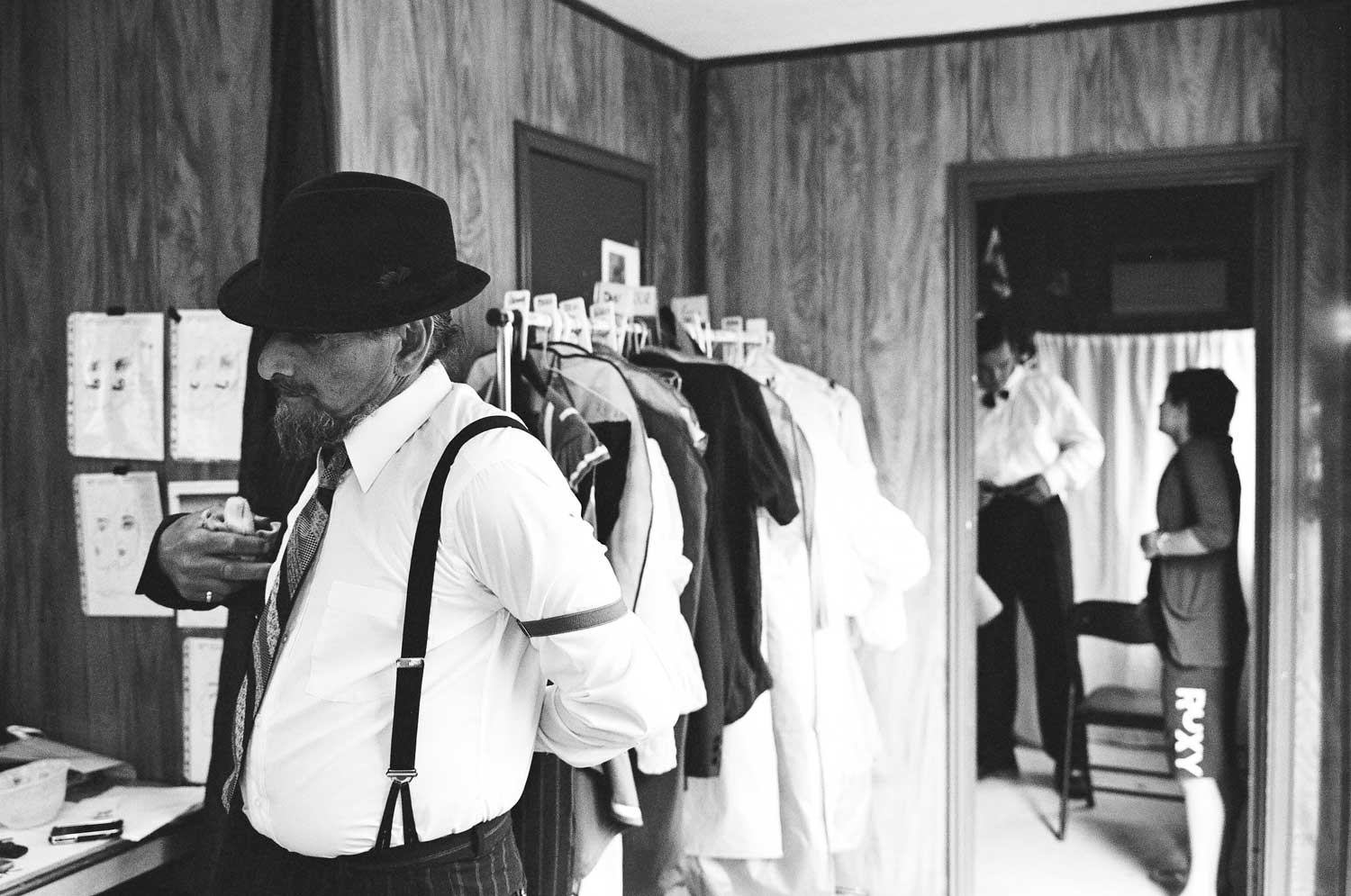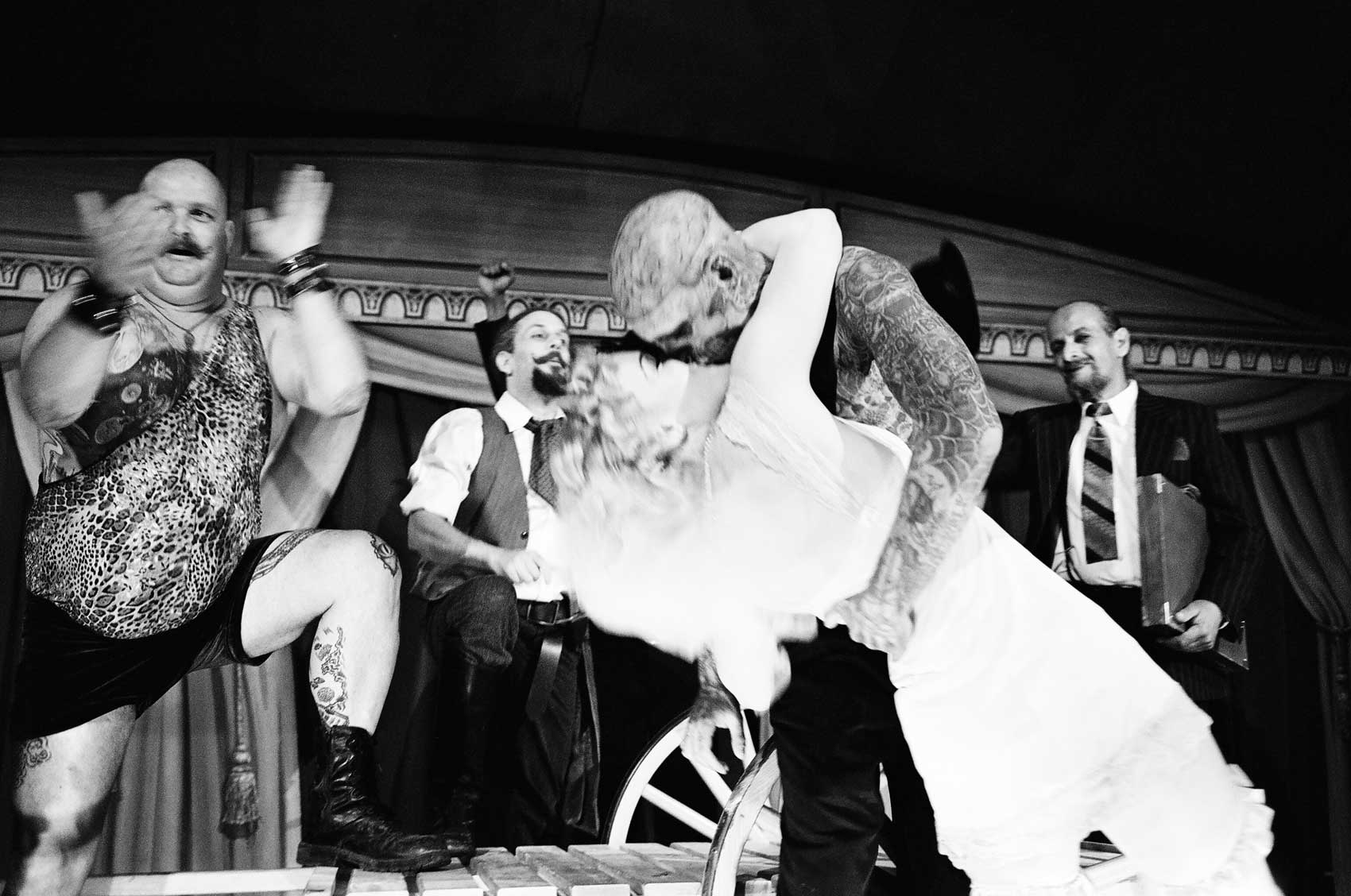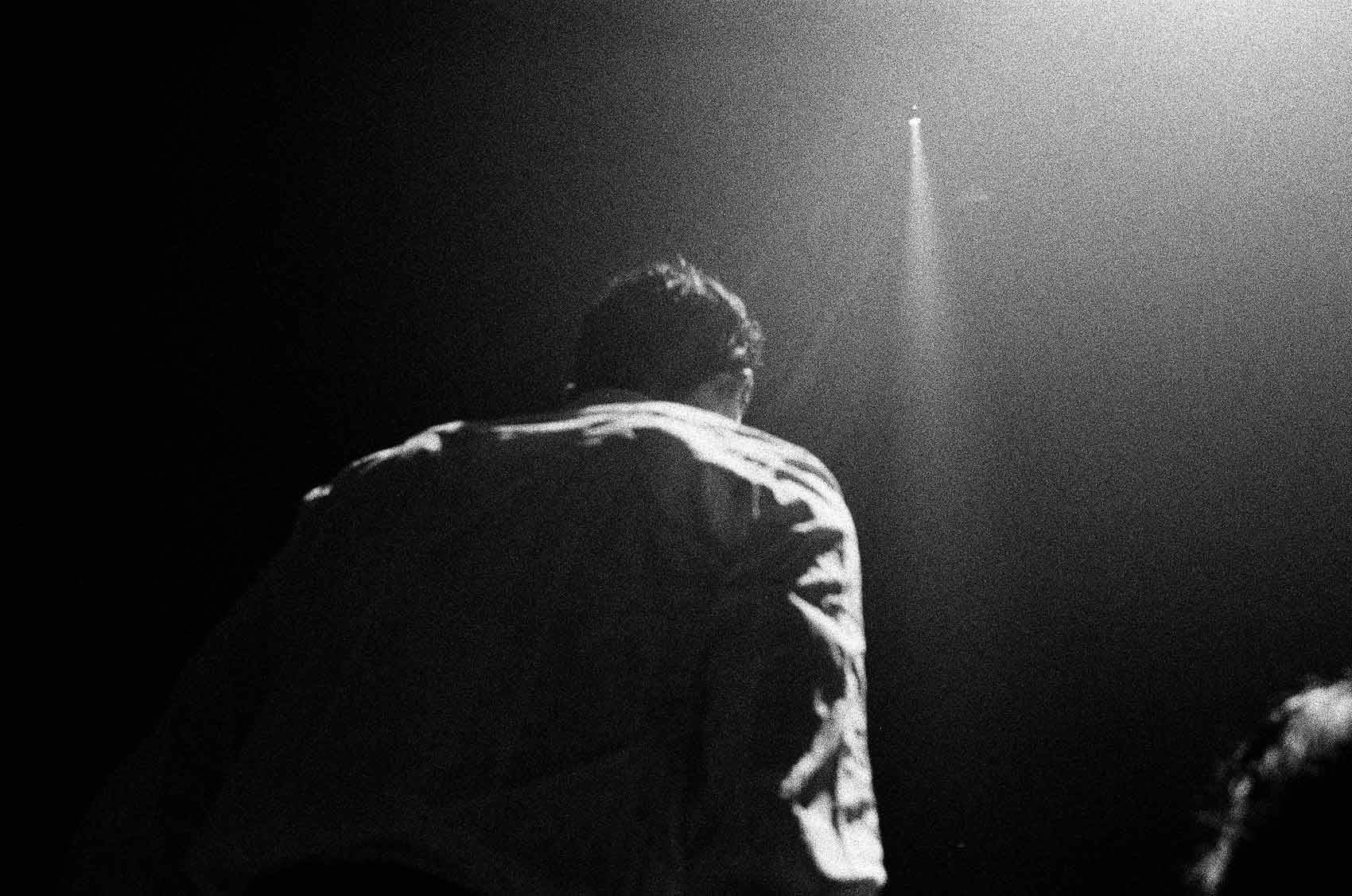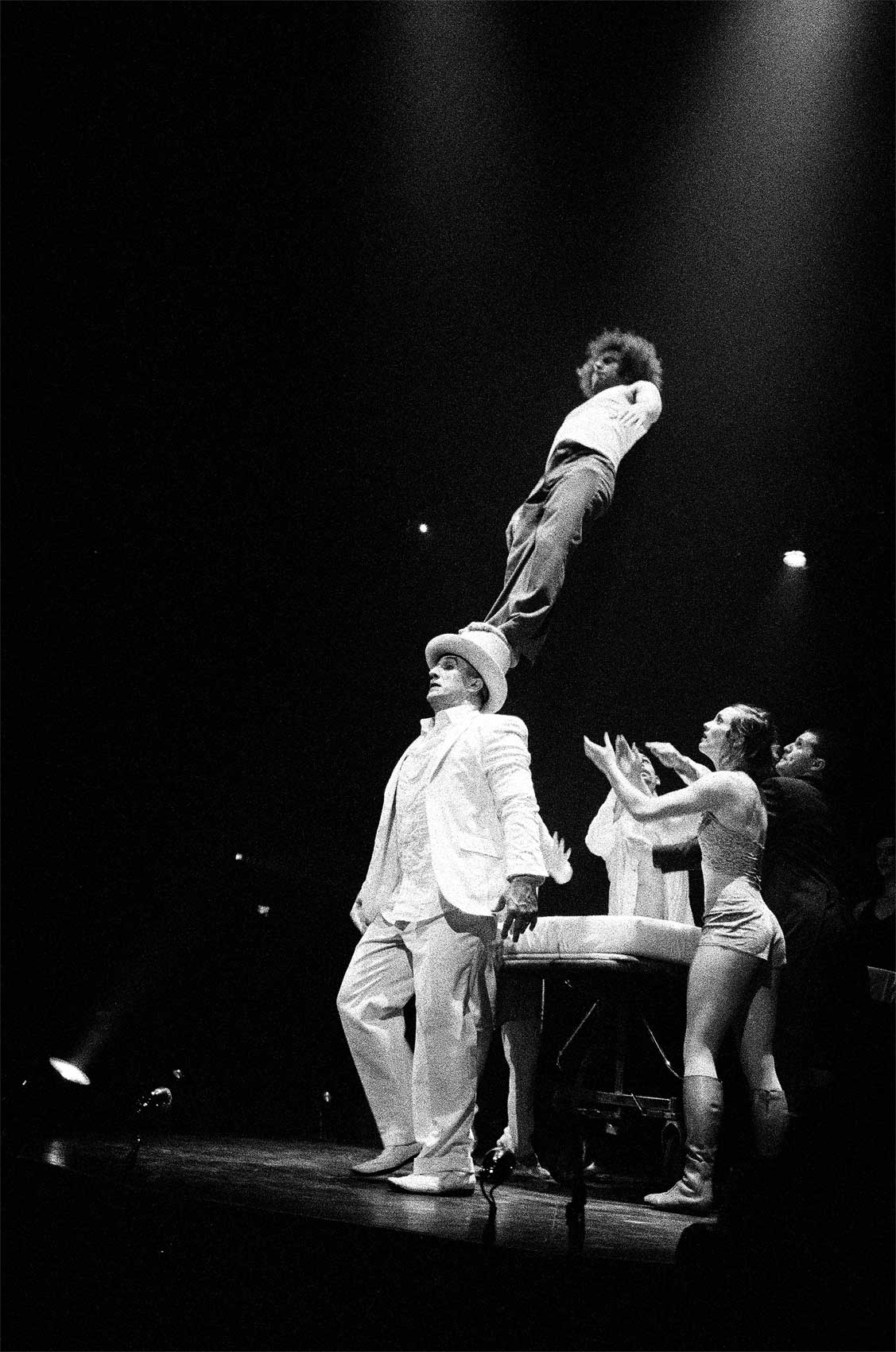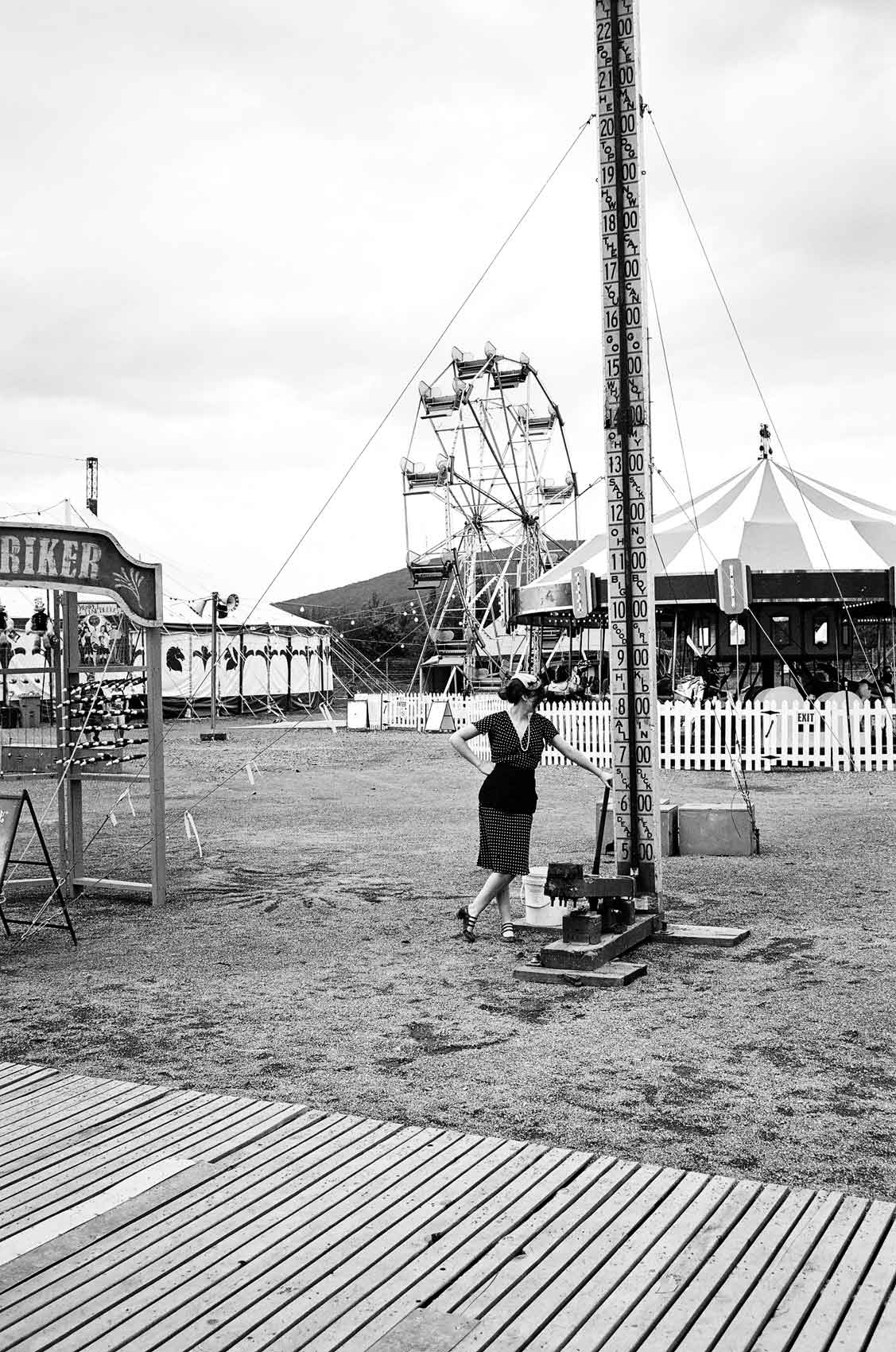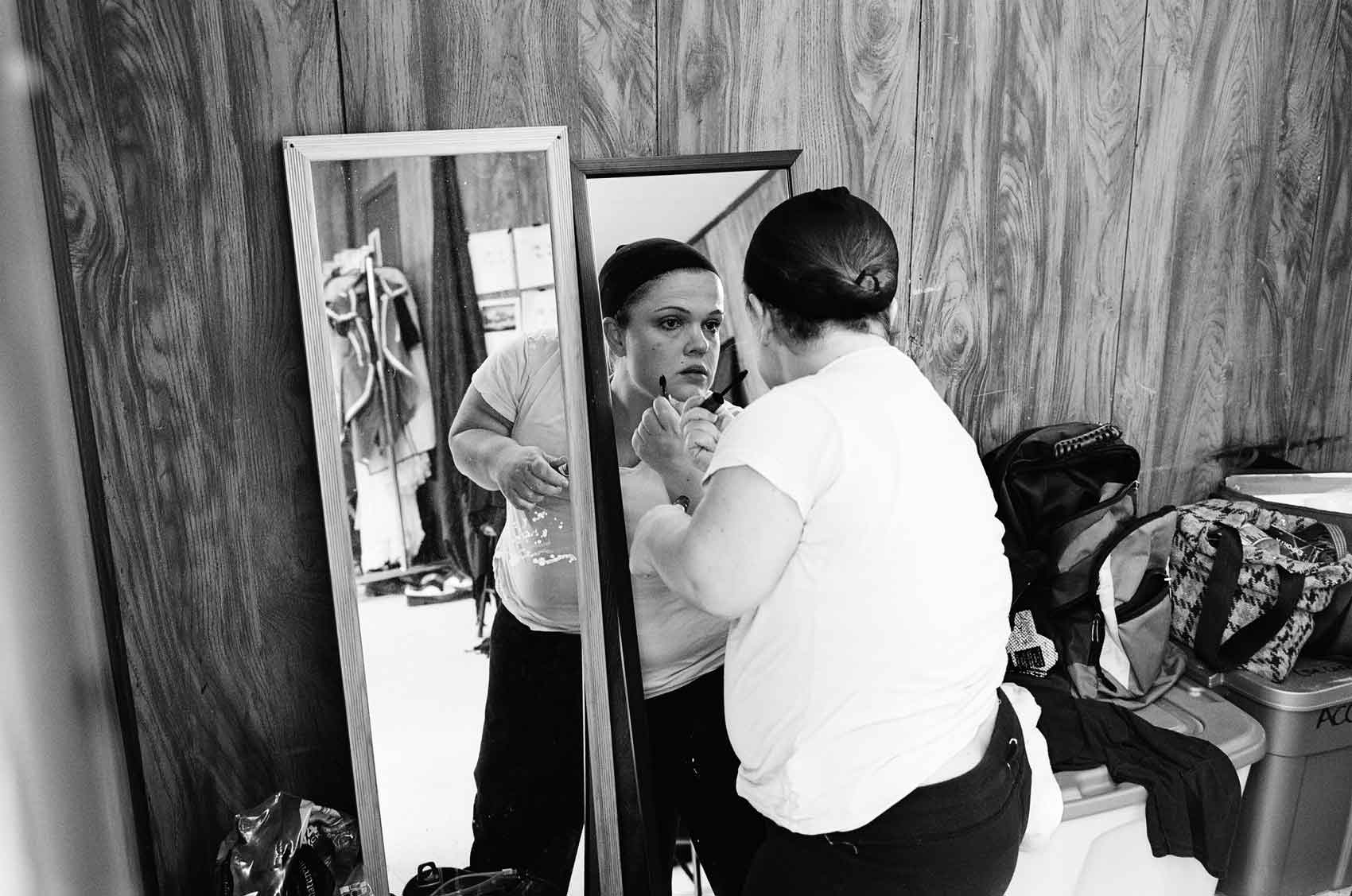Le Cirque
Rawi Hage
A circus is fluid in its movements, and has a perpetual love for metamorphosis and disguise. One day, pointing my camera at a trapeze in flying motion, it hit me: a photograph is nothing but a tool to render the world into stillness. To stand and frame the life of a circus, with its history of performing and wandering through markets and palaces, felt like a travesty. I was saddened to find myself committing an act of philosophical and historical injustice. A circus, I thought, should not be represented in its fragments.
Photography advocates motionlessness, I suddenly said to myself. In its celebration of stillness, photography is about halting time. I wondered if it should confine itself to the things that seek to beautify the world or declare the inevitability of our death. Photography, I thought, might be more suitable for recording war, or fashion, since both advocate a triumph over something: the former a triumph over all others, and the latter a triumph over perceived inadequacies of the self. On the other hand, a circus is, historically and in the imagination, a place of refuge for all those rejected, abused or orphaned by war and mayhem. A circus is a travelling nation, disregarding the borders of nation states and the homogeneities of beauty.
How aggressive, I thought, to point my lens at a clown or a freak. How immoral, I thought, was my attempt to invade this place of refuge, but I kept on taking photographs, remembering that I had also left my home to settle in another country, and I was also a refugee who once sought to flee a place that was torn apart by war, I also belonged to the contingencies of rejects. Circuses have the capacity to transform those rejected by society – the acrobats, rope-walkers, puppeteers and expelled demons – into wonders and celebrities.
These images were taken in 2010 just outside of my adopted home, Montreal, at the Carnivàle Lune Bleue, a circus which one day surfaced, performed and moved on. The province of Quebec still hosts many carnivals and circuses. Naturally the function of these events has changed over time and, these days, the rawness of the old, traditional circus exists in tandem with the vivid spectacles of aesthetically wondrous performances, such as those by Cirque du Soleil. However, the question of why the place where I live has hosted, throughout the years, so many circuses – and excelled at them – persists. I suspect that, here, the identity of the rejected is cherished because this land has a history of seclusion and winter, as well as a resistance to all that is overwhelming or that is imposed by the conventional. Laughter, here, was never an escape from the harshness of the land, but a strange kind of defiance.

